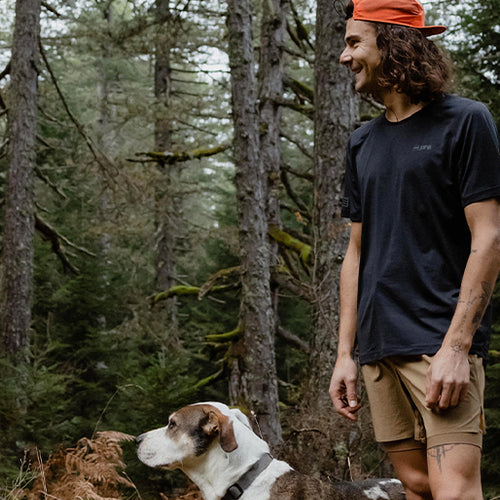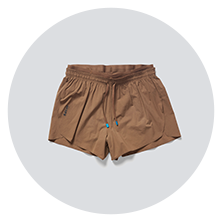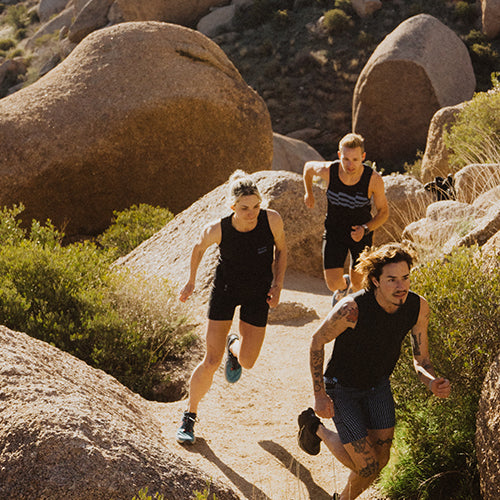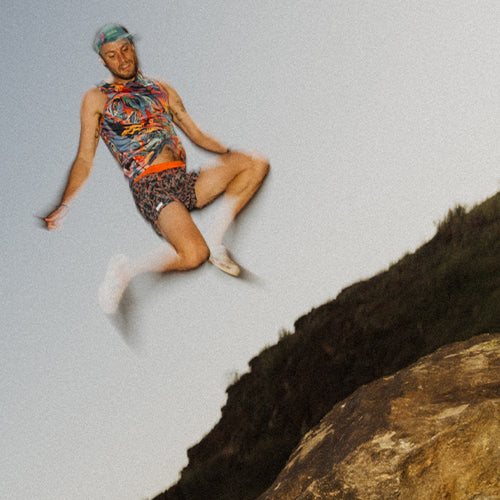Janji Films presents:
RUN ALL DAY
featuring Ashleigh Thompson
Janji Films presents:
Run All Day
featuring Ashleigh Thompson
Q: Can you tell us a little bit about your PhD work?
A: I’m an anthropology PhD candidate with a concentration in archaeology and an American Indian Studies minor. I do archaeological and ethnographic work that centers Indigenous peoples and Indigenous research methods. Besides research, some of my favorite work as a graduate student has been teaching American Indian Studies classes. I love learning alongside students about anything and everything Indigenous.

Q: Being in a PhD program sounds stressful! What role does the outdoors play in supporting your mental health during this period of your life?
A: Academia is stressful. To lessen my anxiety, being outdoors and exercising are essential to my wellbeing. If I don’t exercise for a few days, my anxiety gets worse. So, even in my busiest times, I try to prioritize movement and time outside. I’m glad and grateful to live in the Sonoran desert. There are so many beautiful places to run, climb, and distract myself from all the stressful things life throws my way.
Q: What inspired you to get into this kind of work?
A: Archaeology has a history of problematic actions that harm Indigenous communities. Destruction to sacred cultural sites, desecration of ancestral burial places and ancestors’ remains, and refusing to repatriate Indigenous items are a few of the issues. I saw a need for more Indigenous archaeologists to address these problems and advocate for Tribes. I also love learning about people, especially Indigenous peoples, so archaeology is an intriguing and fun field for me.

Q: What do you want people to know about recreating on Indigenous lands?
A: One major thing I’d like people to realize is the contemporary connections Native people hold to the land. Even if you’re recreating on non-Tribal lands, you’re on the homelands to one or more Tribal Nations. Because we are on Indigenous land, people should be a good visitor by respecting the land (e.g., practicing good stewardship). Beyond being respectful, though, I wish the outdoor recreation community would support Indigenous activism as well. Whether that be stopping the proposed mine in Oak Flat in Arizona - a sacred area to the Apache - or supporting whatever Indigenous environmental issue is in your area. The outdoor recreation community and Indigenous communities can accomplish a lot by supporting one another. For example, the protection of Bears Ears was successful because outdoor recreational groups, Tribal Nations, and scientists came together to try to protect this sacred, culturally-rich, and scientifically valuable area. Indigenous land management is essential to the protection of land and curbing the climate crisis.

Q: How has running influenced your work?
A: Running supports my overall wellness, which gives me more energy and enthusiasm when I am working. It also makes me strong, which is an asset for archaeological fieldwork. In the field, I might spend a week digging in the ground, hauling buckets of soil, and hiking, so running forms a strong fitness base that supports my ability to do fieldwork. Running also has taught me lessons and honed my mental skills. For example, it has developed my self-discipline to work under difficult conditions and shows me how much I’m capable of accomplishing.
Q: What/who inspires you?
A: My grandmother inspires me to be kind, generous, attentive, and hardworking. She raised me and showed me how to live through her actions, which always centered love. I try to live like her every day.
Stay tuned for more Field Team dispatches this spring




















